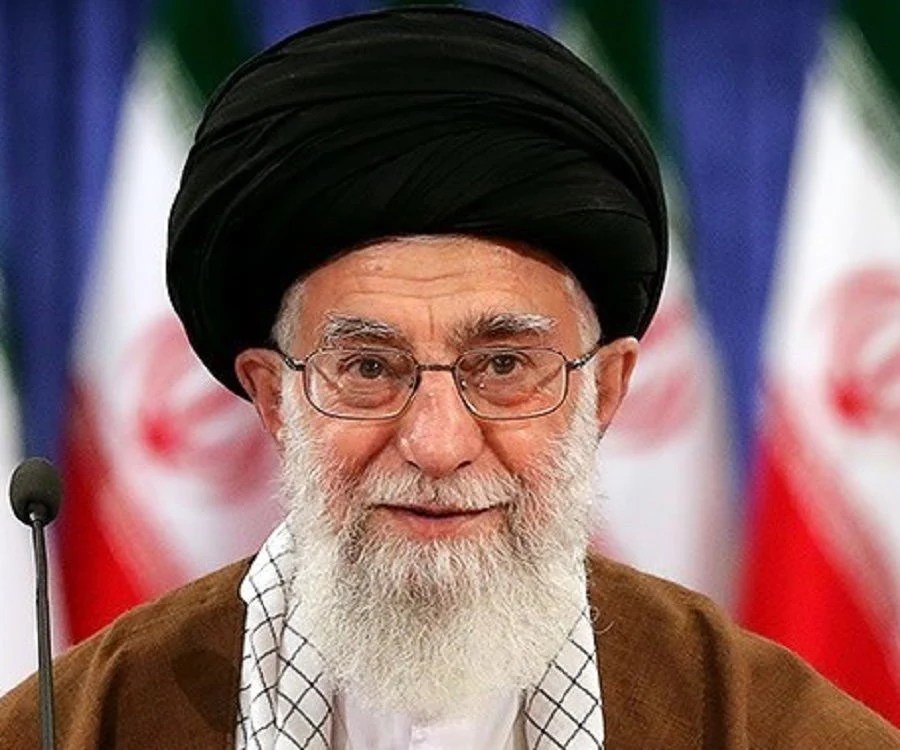The Supreme Leader Of Iran

Ali Khamenei has been a pivotal figure in Iranian politics since the 1979 Islamic Revolution, serving as the Supreme Leader of Iran. His leadership has significantly influenced the nation's trajectory, shaping its domestic and foreign policies. In this article, we will explore Khamenei's life, political career, and the impact of his leadership on Iran and the world.
This article will delve into Khamenei's biography, his rise to power, key policies, and the controversies surrounding his leadership. With a focus on providing comprehensive insights, we also aim to highlight the implications of his rule on Iran's relationship with the international community. Let’s begin with a detailed look at his biography.
Table of Contents
Biography of Ali Khamenei
| Full Name | Ali Hosseini Khamenei |
|---|---|
| Date of Birth | July 17, 1939 |
| Place of Birth | Mashhad, Iran |
| Position | Supreme Leader of Iran |
| Political Party | Islamic Republican Party |
Early Life and Education
Ali Khamenei was born into a religious family in Mashhad. His father was a prominent cleric, which deeply influenced Khamenei’s religious upbringing. He began his religious studies at a young age and moved to Qom to further his education under renowned scholars. His early exposure to Islamic teachings laid the foundation for his future political ideology.
Religious Influence and Activism
During the 1960s, Khamenei became actively involved in the anti-Shah movement, advocating for the establishment of an Islamic government. His writings and speeches garnered attention, and he quickly became a notable figure among the clergy.
Political Career
After the 1979 revolution, Khamenei held various positions, including Minister of Defense and a member of the Assembly of Experts. His close association with Ayatollah Khomeini solidified his standing within the new regime.
Rise to Supreme Leader
Upon Khomeini's death in 1989, Khamenei was elected as the Supreme Leader, a role that grants him control over the military, judiciary, and media. His leadership style has been characterized by a mix of traditional Islamic values and pragmatic governance.
Supreme Leadership
As the Supreme Leader, Khamenei wields immense power, often making decisions that impact all aspects of Iranian life. He has been a staunch advocate for the Islamic Revolution's principles, emphasizing the importance of maintaining Iran's sovereignty against Western influence.
Key Policies and Governance
Khamenei's governance emphasizes resistance against the United States and Israel, promoting a narrative of anti-imperialism. He has also prioritized military advancements and economic self-sufficiency to reduce reliance on foreign nations.
Domestic Policies
Under Khamenei's leadership, Iran has pursued various domestic policies aimed at consolidating power and maintaining social order. These policies often include strict censorship, suppression of dissent, and control over various aspects of life.
Economic Policies
- Focus on self-sufficiency and resistance economy.
- Efforts to reduce unemployment through state-driven initiatives.
- Challenges with international sanctions affecting economic stability.
Foreign Policies
Khamenei's foreign policy is characterized by a commitment to supporting allied groups in the region, including Hezbollah and various factions in Iraq and Syria. This strategy aims to counterbalance U.S. influence in the Middle East.
Nuclear Program Controversy
The Iranian nuclear program, a significant point of contention with Western nations, has been a focal point of Khamenei's foreign policy. He has consistently defended Iran's right to pursue nuclear technology for peaceful purposes while rejecting accusations of weaponization.
Controversies and Criticism
Khamenei's leadership has not been without controversy. His government has faced accusations of human rights abuses, electoral fraud, and suppression of freedom of speech. Many critics argue that his policies have led to economic hardship and isolation from the international community.
Repression of Dissent
The crackdown on protests, particularly during the 2009 presidential elections and recent demonstrations, has drawn significant criticism from human rights organizations and foreign governments.
Impact on Iran and Beyond
Ali Khamenei’s influence extends beyond Iran, affecting geopolitics in the Middle East and global relations. His steadfast resistance to U.S. policies has shaped the regional landscape, often leading to increased tensions and conflicts.
Legacy and Future
Khamenei's legacy is complex, marked by a blend of religious authority and political ambition. As he ages, questions about succession and the future direction of Iran loom large, with potential implications for both domestic stability and international relations.
Conclusion
In summary, Ali Khamenei has played a crucial role in shaping modern Iran through his leadership and policies. His impact on both domestic and foreign affairs continues to resonate, impacting the lives of Iranians and the broader geopolitical landscape. Engaging in discussions about his legacy and future is essential for understanding Iran's trajectory. We invite readers to share their thoughts in the comments and explore more articles on our site.
Thank you for reading! We hope this article provides valuable insights into the life and leadership of Ali Khamenei. Please visit us again for more in-depth analyses on current events and historical figures.
ncG1vNJzZmirn521b6%2FOpmasp5idu6bD0pusrGppZK6ttYykn5qllaOyqnrHraSl